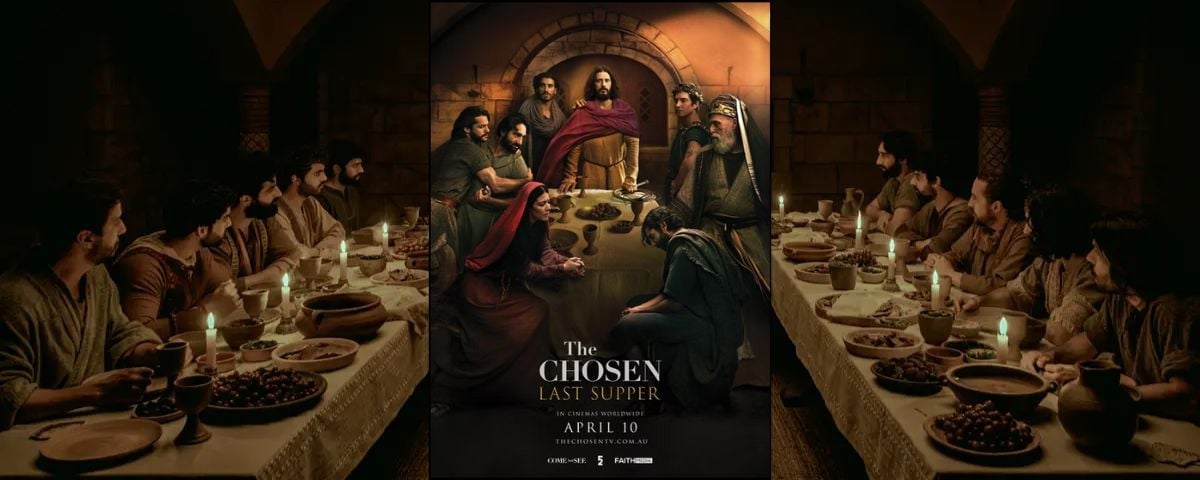Since the release of The Godfather, the Mafia has become a mainstay in Hollywood productions.
Two figures that loomed large in this criminal underworld were Vito Genovese and Frank Costello, who were childhood friends who grew up to be leaders in this worldwide organisation. Their story and eventual personal war became legendary and have interested studios since the 1970s. Yet, not until Goodfellas/Casino screenwriter Nicholas Pileggi and Academy Award-winning director Barry Levinson (Rain Man) were given the project did this compelling story get the green light.
Robert DeNiro (The Irishman, Killers of the Flower Moon) takes on both roles of crime bosses, Vito Genovese and Frank Costello. A twisted tale that begins at the catalyst that led to these long standing friends being on opposite sides of the underworld that spanned decades. When Vito attempts and fails to have Frank assassinated, the wheels are put into motion for the eventual changes needed in leadership. Yet, Levinson has Frank narrate this docudrama that incorporates actual historical footage as it jumps from the past to the events after the unsuccessful hit on his life. The story captures the polarising methods both men incorporated to further their work in all areas of crime.
Pileggi, Levinson, and DeNiro are legends and have conquered much within the industry, continuing to make waves in their senior years. The monumental task of taking both lead characters was compelling as the award-winning actor took on both roles with remarkable skill. Though the aging process and make-up work had some challenges keeping up throughout the production, DeNiro sat in both characters effectively. Kathrine Narducci, Michael Rispoli, and Cosmo Jarvis delivered strong performances in their support for the story and complemented the overall production. Yet, the weakest inclusion was Debra Messing, who never felt fully natural in the mob boss’ wife role. This issue could be attributed to the significant age difference in the actors
The Alto Knights: Meticulous Detail in a Non-Linear Narrative
What stands out as a juxtaposition in this storyline lies in Barry Levinson’s direction and Nicholas Pileggi’s screenplay. This pairing carefully manages the years of friendly animosity between the two crime figures. Meticulous detail is conveyed through the narrative and methodically woven across the years in a non-linear fashion, which at times may cause confusion or potential fatigue due to the multiple discourses from both characters. Despite being based on actual events in mob history, the action unfolds in small doses as a war of words ensues between these historical figures.
The Alto Knights will appeal to those fascinated with the world of crime throughout American history and Robert DeNiro proves he still has the ability to take on double duty in any production. Yet, this docudrama suffers from a lethargic tone that would have benefited from more action and less talk.
The Alto Knights is rated MA and is in cinemas now.
Is loyalty a blessing or a curse?
Loyalty is both fascinating and confusing. It is defined as being faithful to something or someone. Vito Genovese and Frank Costello’s friendship in The Alto Knights spanned the years and proved valuable but eventually became a curse. These two men defined how the mob world could be managed differently and how these paths struggle to complement one another. Their relationship begs the question, why do we choose to be loyal or faithful to anyone? It seems rooted in wanting to place implicit trust in the person we put our faith in and knowing that this loyalty will be reciprocated.
The Bible attaches a deeper meaning to the idea of loyalty. God is the only one entirely faithful. He is faithful even when his followers are faithless. The thing to consider is that loyalty can be fleeting with mankind, but with God, we can find real loyalty and someone true to their word.
‘Peter said to him, “Even if I must die with you, I will not deny you!” And all the disciples said the same.’ Matthew 26:35
For students of the Bible, they will appreciate the irony of using this passage as an example of loyalty. A historical statement in the life of Peter that would show that the only person genuinely loyal in this life is Jesus.
Article supplied with thanks to City Bible Forum.
About the author: Russ Matthews is a film critic at City Bible Forum and Reel Dialogue. He has a passion for film and sparking spiritual conversations.
All images: Movie publicity
Get daily encouragement delivered straight to your inbox
Writers from our Real Hope community offer valuable wisdom and insights based on their own experiences!























